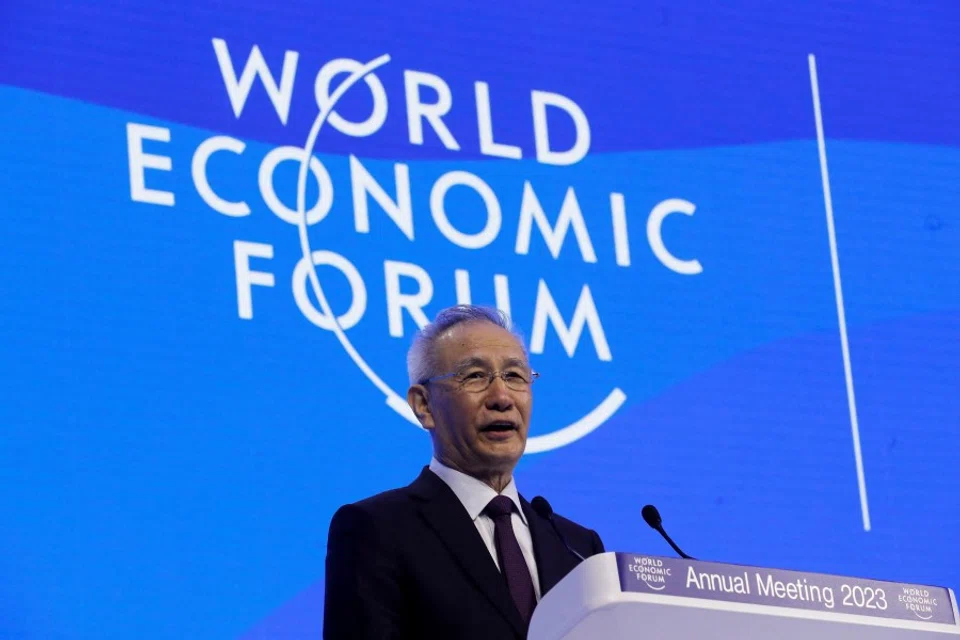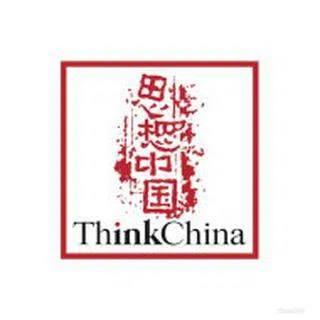China can still shine if it acts on Vice-Premier Liu He's Davos advice
At this year's Davos forum, Chinese Vice-Premier Liu He laid out five points that have led to China's success so far. However, his session did not see a packed crowd, while China's claims of sticking to reform and opening up seem less than convincing when taken against its actions. Commentator Jin Jian Guo delves into the importance of staying the course.

While China no longer shines as brightly as it used to at the Davos forum, Chinese Vice-Premier Liu He's speech is to be congratulated. It was a declaration to the world of China's commitment to reform and opening up, and a confirmation of China's development path as it stands at a crossroads.
Things have changed because the West no longer talks about China's rise but its decline. The global attraction of China's enormous economy has fallen. Specifically, China using its huge economy as a strategic tool has become less effective - one example is China making the first move in lifting the ban on Australian coal imports. China's hope of leading the world has less pull; the narrative of "the rise of the East and decline of the West" as propagated by China's official media has cooled; Zhao Lijian being moved from his role as foreign ministry spokesperson should be seen as an effort by China to improve diplomatic relations with the West.
China losing its shine
The period of change goes back to 2017, when US President Donald Trump was waving the protectionist banner of "America First", and putting off Europe, which in turn was facing Brexit. At the time, China's top leader stood on the podium at Davos as if on top of Tiananmen Tower, waving as he led the world towards globalisation. The MNC giants listening in the audience must have been so inspired as they dreamt of continuing to make lots of money from the Chinese market.
But when Liu spoke at the 2023 forum, about a quarter of the seats were empty; in contrast, European Commission President Ursula von der Leyen spoke to a packed crowd.

China's attraction to the world lasted until 2018, when Liu He's speech at the Davos forum was one of the most well-attended sessions. But when Liu spoke at the 2023 forum, about a quarter of the seats were empty; in contrast, European Commission President Ursula von der Leyen spoke to a packed crowd. What does this say? Von der Leyen even boldly criticised the Chinese government for unfairly subsidising Chinese companies in its efforts to lead the clean energy industry, at the cost of sacrificing the interests of Europe and the US.
Europe united in values
Von der Leyen dared to call out China because the situation between China and the West has changed. The war in Ukraine does not show the decline of the West; if that was the case, Russia would have taken Ukraine by now, and there would have been a parade of Russian troops in Kyiv. The fact is, Europe is no longer heavily dependent on Russian energy, which shows Europe's adaptability. Ukraine's victory on the battlefield will come with the support of Western weapons. While Western countries have their differences when it comes to sending tanks in support of Ukraine, their stand on values and systems is consistent, and it is difficult to breach this stoutly defended fortress.
Now, Western countries are seeing a shrinking population, a depressed property market and GDP growth at a record low in China. In the face of these facts, the West is talking about China's decline. They declare that China's property bubble is about to burst, investments are moving away at a record rate, Hong Kong is no longer a free city, and Huawei is not welcome in the West - in particular, they embellish the consequences of the drop in China's population.
Whether in academics or politics, Liu's thinking has always been in step with reform and opening up.
Declining China a bane for the West
However, there is no schadenfreude in the discussion. On the contrary, they feel that a declining China is a greater threat to the West. In a New York Times commentary titled "China's Decline Became Undeniable This Week. Now What?", the concluding line is: "In the long run, the greatest hope we can have for China is its people. The greatest investment we can make in the coming decades of turbulence is to keep faith with them."

The new situation highlights the importance of Liu's speech at Davos. He summarised five points in China's achievements. First, making economic development the primary and central task. Second, establishing a socialist market economy as the direction of reform - letting the market play a decisive role in resource allocation, and letting the government play a better role. He added that some people say China will go for the planned economy, but that is by no means possible. Third, promoting all-round opening-up. Fourth, upholding the rule of law. Fifth, pursuing innovation-driven development.
These five points indeed embody the brilliant results of China's reform and opening up; the ruling party and people have put them into action. Liu himself has implemented these points in participating in China's reform and opening up.
Whether in academics or politics, Liu's thinking has always been in step with reform and opening up. He objects to the ideas of nationalism and populism that have spread in China; amid populism, party publications release articles on eliminating private ownership, while the Chinese Academy of History confirms the logic of a closed-door policy. We should have ample reason to believe that as vice-premier, even if Liu has done anything contrary to these five points, he could not have acted otherwise.
...and as long as the ruling party sticks to them, China will overcome its present difficulties and rediscover the glory of reform and opening up.
Sticking to tried-and-tested economic formulae
Liu's Davos speech was significant in speaking for the ruling party in reiterating the policy of reform and opening up. Liu was telling the world that those five points were the secret weapon in rousing China's power, and as long as the ruling party sticks to them, China will overcome its present difficulties and rediscover the glory of reform and opening up.
As Liu prepares to move on from being in charge of economic efforts, Liu's Davos speech is a word of warning to his successors too, that if they stray from these five points, their efforts will not lead to any results for China's economy. These five points should become a mantra for those who come after, an unshakeable scripture to guide China's economy.

Why can't China defy these five points? Because it is at a crossroads, and where it goes from here has to do with its destiny. Another basis for Western comments on China's decline is that these five points are contrary to what China has been doing over the past few years.
China has strayed from these points, and as a consequence, its economy is in difficulties. Some people even say that these five points contradict the past ten years. The history of the market economy tells us that the market economy is the only economic means to drive a nation's economy forward - there is no alternative.
Now, Ma has stepped down from leadership at Alibaba and Ant Group - is this the choice of the market, or of the powers that be?
Crossroads determining China's future
Why do I say China is at a crossroads? From the absence of Chinese entrepreneurs from Davos 2023, one can see the problem with China's economy in the past few years. Jack Ma is a classic example of China's reform and opening up. He used to be a regular at Davos, where his humorous speeches left a deep impression and gave the world a better understanding of China. Now, Ma has stepped down from leadership at Alibaba and Ant Group - is this the choice of the market, or of the powers that be?

Ma and Liu know way better than most.
China is now starting to be friendly to the private sector economy, which means that the private sector economy is also at a crossroads between growth and shrinkage. For private sector entrepreneurs, 2022 was the year of "runology" - running away or exiting from China.
Singapore-based consultancy Lotusia handles registrations and visa applications; a staff member said the list of Chinese clients has grown rapidly. Many Chinese from the fields of education, gaming, cryptocurrency, and fintech seek his services. These are the sectors that the government has cleaned up and managed over the past few years.
The past is the past. Looking at the future, whether China's private sector entrepreneurs can make a comeback depends on whether Liu's five points can be applied to the private sector economy. If the private sector economy is not revived, the future of China's economy looks bleak, because China is at another crossroads regarding the future relationship between China and the West.
Putting aside the fact that China-US trade relations are in the midst of decoupling, right now only Germany and France dare to openly say they are willing to develop trade links with China. Other Western countries like the UK, Japan, Canada, and Australia have joined the US-led anti-China group, which is planning to drop their dependence on the Chinese economy in the foreseeable future.
The only thing that can adjust and improve the relationship between China and the West is Liu's five points. The US was the first to express the hope that China will go back to Deng Xiaoping's era of reform and opening up. While the climate has changed, China-style modernisation will still have to keep to Liu's five points - right now, the West doubts if China can do that. The best response from China is action and not slogans.
Related: Could the end of the China-US trade war be near? | US-China trade talks resume on a wary note | It takes a mountain of effort to tell the truth about China's economy | The politicisation of China-US trade ties: Showdown between capitalism and communism? | Politics a threat to China's economy | Dual circulation strategy revisited: China deepens integration with the global economy





![[Photos] Fact versus fiction: The portrayal of WWII anti-Japanese martyrs in Taiwan](https://cassette.sphdigital.com.sg/image/thinkchina/3494f8bd481870f7c65b881fd21a3fd733f573f23232376e39c532a2c7593cbc)